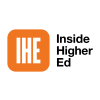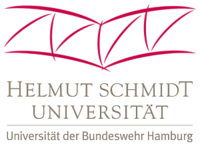Snabbfakta
-
- Durham
Ansök senast: 2025-02-15
Associate Professor in Environmental Sustainability (EARTH_01)
The Department of Earth Sciences at Durham University has the exciting opportunity to appoint an Associate Professor in Environmental Sustainability (Research and Education) to help strengthen our existing research, teaching and impact that addresses the major environmental challenges such as Climate Change, Energy Transition and Sustainable use of Resources. We seek an outstanding individual to take a leadership role in research and teaching, and in particular lead curricula development and delivery of parts of our new MSc in Environmental Sustainability, which is at final approval stage and is scheduled to begin teaching in October 2026.
The Department
Durham Earth Sciences is one of the best UK Earth Science departments with an outstanding reputation for excellence in teaching, research and the satisfaction and employability of its students. It is regularly ranked in the top 10 of UK departments and is within the global top 50 (QS rankings).
The department has around 30 academic staff, 15 research staff, 50 postgraduate students and 280 undergraduate students. Its research covers a spectrum of Earth Science disciplines around four broad themes: Solid Earth; Climate and Environmental Change; Geoenergy, Resources and Waste; Geohazards. The themes reflect our aim to not only undertake fundamental and intrinsically excellent research, but also research that is relevant to and impacts society. We collaborate widely, and within Durham we work closely with both the Institute of Hazard, Risk and Resilience and the Durham Energy Institute. The Department has world-class research facilities (https://www.durham.ac.uk/departments/academic/earth-sciences/about-us/facilities/)
The Department is committed to providing the highest level of education to its students, giving them the knowledge, skills and confidence to contribute positively to the world beyond Durham. We provide research-led teaching in Geology, Geophysics, Environmental Geoscience and Climate Science with a large proportion of practical classes and a deep commitment to field-based teaching. We regularly receive > 90% satisfaction scores on the annual National Student Survey and our students are highly sought after by a range of employers.
The Department of Earth Sciences holds a departmental Silver Athena SWAN award in recognition of its efforts to promote gender equality and address challenges particular to the earth sciences.
This post offers an exciting opportunity to make a major contribution to the development of internationally excellent research and teaching in Environmental Sustainability while allowing you unrivalled opportunities to progress and embed your career in an exciting and progressive institution. For more information, please visit our Department pages.
Working at Durham University
A globally outstanding centre of teaching and research excellence, a warm and friendly place to work, a unique and historic setting - Durham is a university like no other.
As one of the UK's leading universities, Durham is an incredible place to define your career. The University is located within a beautiful historic city, home to a UNESCO World Heritage Site, and surrounded by stunning countryside. Our talented scholars and researchers from around the world are tackling global issues and making a difference to people's lives.
We believe that inspiring our people to do outstanding things at Durham enables Durham people to do outstanding things in the world. Being a part of Durham is about more than just the success of the University, it's also about contributing to the success of the city, county and community.
Our University Strategy is built on three pillars of research, education and wider student experience, but also on our keen sense of community and of inspiring others to achieve their potential.
Our Purpose and Values
We want our University to be a place where people can be free to be themselves, no matter what their identity or background. Together, we celebrate difference, value one another and are each responsible for creating an inclusive community that is respectful and fair for all.
Find out more about the benefits of working at the University and what it is like to live and work in the Durham area on our Why Join Us? - Information Page
Discover more about our total rewards and benefits package here.
Associate Professors at Durham
Associate Professors on the Education and Research track are encouraged to focus on research and teaching but are also expected to engage in wider citizenship to enhance their own development, support their department and discipline, and contribute to the wider student experience.
Academic colleagues are supported to publish internationally excellent research in high impact outputs (including monographs and journal articles), in their area of interest with a focus on quality rather than quantity. We will fully support your research needs including practical help such as resources to attend conferences and to fund research activity, as well as a generous research leave policy and a designated mentor. Sitting alongside world class research; teaching quality and innovation is critical to ensure a first-class learning environment and curricula for all our students.
Durham University is also committed to ensuring outstanding teaching quality, stimulating learning environments, and innovative curricula for all our students. You will be supported to develop your teaching expertise and skills.
We are confident that our recruitment process allows us to attract and select the best international talent to Durham. We therefore offer a reduced probation period of 1 year for our Associate Professors and thereafter, subject to satisfactory performance, your position will be confirmed as permanent.
We strive to provide a working and teaching environment that is inclusive and welcoming and where everyone is treated fairly with dignity and respect. Candidates will be expected to demonstrate these key principles as part of the assessment process.
Key responsibilities:
- Pursue research that is world-leading in terms of originality, significance and rigour, commensurate with the Department's continuing emphasis on international excellence;
- Make a significant contribution to the development of successful research project/ fellowship proposals in pursuit of suitable national and international funding opportunities to support research and end-user engagement.
- Deliver excellent teaching offering lectures, seminars and tutorials and supervising research projects primarily at taught postgraduate level for the MSc Environmental Sustainability course. Contribute significantly to the development and delivery of high-quality teaching, including the design of excellent learning environments and curricula in two or equivalent of the following modules:- Environmental Sustainability, Sustainable Resource Management, Environmental Impact Assessment, Climate Change Management and Mitigation. Supervise MSc projects.
- Contribute to enhancing the quality of the research environment in the Department, the wider University and beyond. Contribute to establishing and leading research groups within and beyond the University, and mentor early career researchers.
- Attract and provide excellent supervision to research students and enhance the Department's commitment to its vibrant and international postgraduate culture.
- Contribute significantly to the administrative functioning and collegial environment of the Department and wider University, undertaking leadership activities which support the functioning of the Department and wider University.
- Champion and enhance the values of the Department.
- Carry out such other duties as specified by the Head of Department.
Durham University is committed to equality, diversity and inclusion
Equality, diversity, and inclusion (EDI) are a key component of the University's Strategy and a central part of everything we do. We also live by ourPurpose and Valuesand ourStaff Code of Conduct. At Durham we actively work towards providing an environment where our staff and students can study, work and live in a community which is supportive and inclusive. It's important to us that all colleagues undertake activities that are aligned to both our values and commitment to EDI.
We welcome and encourage applications from those who are currently under-represented in our work force, including people with disabilities and from racially minoritised ethnic groups.
If you have taken a career break or periods of leave that may have impacted on the volume and recency of your research outputs and other activities, such as maternity, adoption or parental leave, you may wish to disclose this in your application. The selection committee will take this into account when evaluating your application.
The University has been awarded the Disability Confident Employer status. If you are a candidate with a disability, we are committed to ensuring fair treatment throughout the recruitment process. We will make adjustments to support the interview process wherever it is reasonable to do so and, where successful, reasonable adjustments will be made to support people within their role.
Person Specification
You will have an established, internationally recognised, and active research programme in environmental geosciences, earth system science, sustainability, or related fields, combining field, lab, and/or computational approaches on topics such as, but not limited to, global carbon cycle dynamics, carbon sequestration, environmental sustainability, climate change and mitigation, energy transition or sustainable resource management. You will be expected and supported to conduct cutting-edge research at the highest level, build your own externally funded research group, collaborate widely within and without the department and to explore the full potential of the impact of your research. Your work will contribute to research and impact themes in the Department, the Science Faculty and across the University, including cross-disciplinary and collaborative vehicles such as the Durham Energy Institute and the Institute for Hazard, Risk and Resilience.
Research
Candidates must provide evidence of the independent development of internationally excellent research in the above areas that produces high-quality outcomes, including some work that is recognised as world-class or that has world-class potential.
Essential Research Criteria
Education
Candidates must demonstrate significant contribution to the development and delivery of high-quality teaching with a demonstrable contribution to the design of excellent learning environments & curricula, including curriculum development, that enable students to achieve their potential.
Essential Education Criteria
Service, Citizenship and Values
Active engagement in the administrative and citizenship requirements of the Department. Positive contributions to the University's Purpose and Values and to fostering a respectful environment, as well as demonstrating a commitment to equality, diversity, and inclusion.
Essential Service, Citizenship and Values criteria
Desirable Criteria
The desirable criteria for this post (for which candidates should provide evidence of some if not all criteria) are:
Contact Information
Department contact for academic-related enquiries
Professor Ken McCaffrey (Head of Department) earthsci.hod@durham.ac.uk
Contact information for technical difficulties when submitting your application
If you encounter technical difficulties when using the online application form, we prefer you send enquiries by email. Please send your name along with a brief description of the problem you're experiencing to e.recruitment@durham.ac.uk
Alternatively, you may call 0191 334 6801 from the UK, or +44 191 334 6801 from outside the UK. This number operates during the hours of 09.00 and 17.00 Monday to Friday, UK time. We will normally respond within one working day (Monday to Friday, excluding UK public holidays).
University contact for general queries about the recruitment process
How to Apply
We prefer to receive applications online.
Please note that in submitting your application Durham University will be processing your data. We would ask you to consider the relevant University Privacy Statement Job Applicants/Potential Job Applicants - Durham University which provides information on the collation, storing and use of data.
What to Submit
All applicants are asked to submit:
- A CV
- A covering letter which details your experience, strengths and potential in the requirements set out above;
- Personal research plan.
- Three of your most significant pieces of written work. Where possible your written work should have been published or submitted since 2021, however work prior to 2021 may be submitted where candidates have had career breaks.
- An EDI & values statement - (of no more than 500 words) which outlines work which you have been involved in which demonstrates your commitment to EDI and our values. I.e. Involvement in quality, diversity, and inclusion activities such as mentoring, volunteering, or attending conferences
Where possible we request that you provide accessible web links to your publications, which the hiring Department will use to access your work. The application form contains fields in which to enter each of the web links. Please note we are unable to access publications behind a paywall. Please provide evidence to support your claims where possible.
In the event you are unable to provide accessible links to online hosting of your work, publications should be uploaded as PDFs as part of your application in our recruitment system.
Please ensure that your PDFs are not larger than 5mb. Your work may be read by colleagues from across the Department and evaluated against the current REF criteria;
All application documents should be uploaded with your name and document type as PDF files.
We will notify you on the status of your application at various points throughout the selection process, via automated emails from our e-recruitment system. Please check your spam/junk folder periodically to ensure you receive all emails.
Referees
You should provide 3 academic referees they should not (if possible) include your PhD supervisor(s). The majority should be from a University other than your own..
References will be requested for candidates who have been shortlisted and will be made available to the panel during the interview process.
As part of your application, you will be asked whether you give your consent to your academic references being sought should you be invited to attend an interview. We will only request references where permission has been granted.
Next Steps
All applications will be considered; our usual practice is for colleagues across the Department to read the submitted work of long-listed candidates.
Short-listed candidates will be invited to the University, either virtually or in-person and will have the opportunity to meet key members of the Department. The assessment for the post will normally include a research presentation and a teaching demonstration to staff and students and we anticipate that the assessments and interviews will take place over two days in or around late February/early March.
In the event that you are unable to attend in person on the date offered, it may not be possible to offer you an interview on an alternative date.
Applicant Guidance
For further guidance on your application please see HERE












